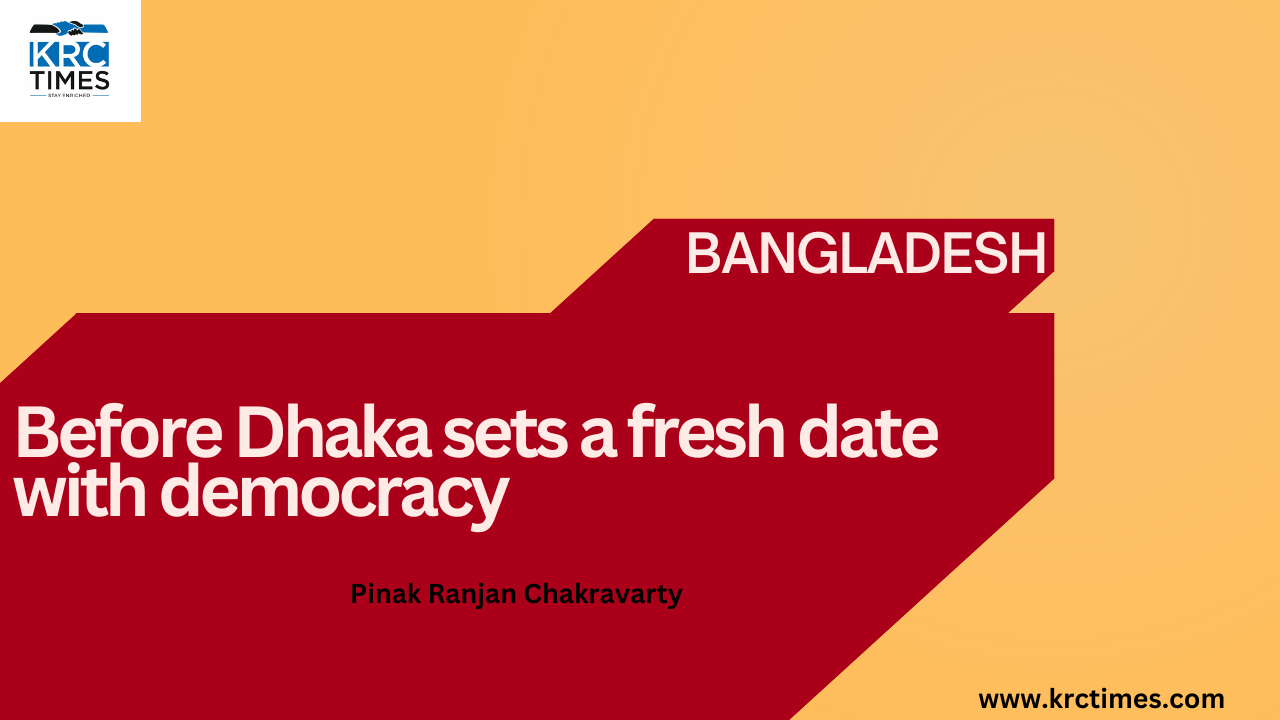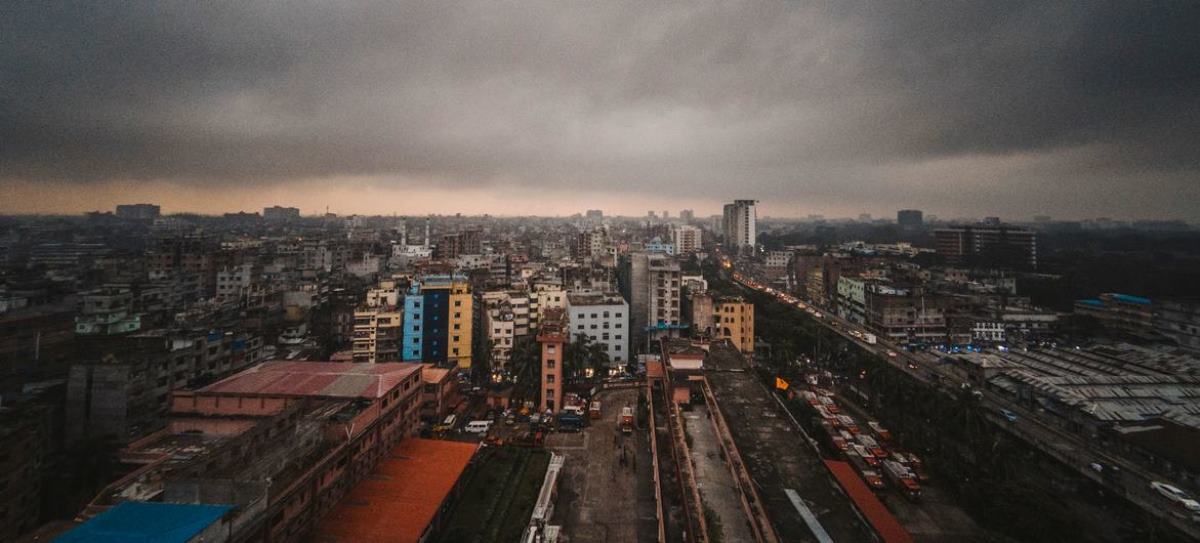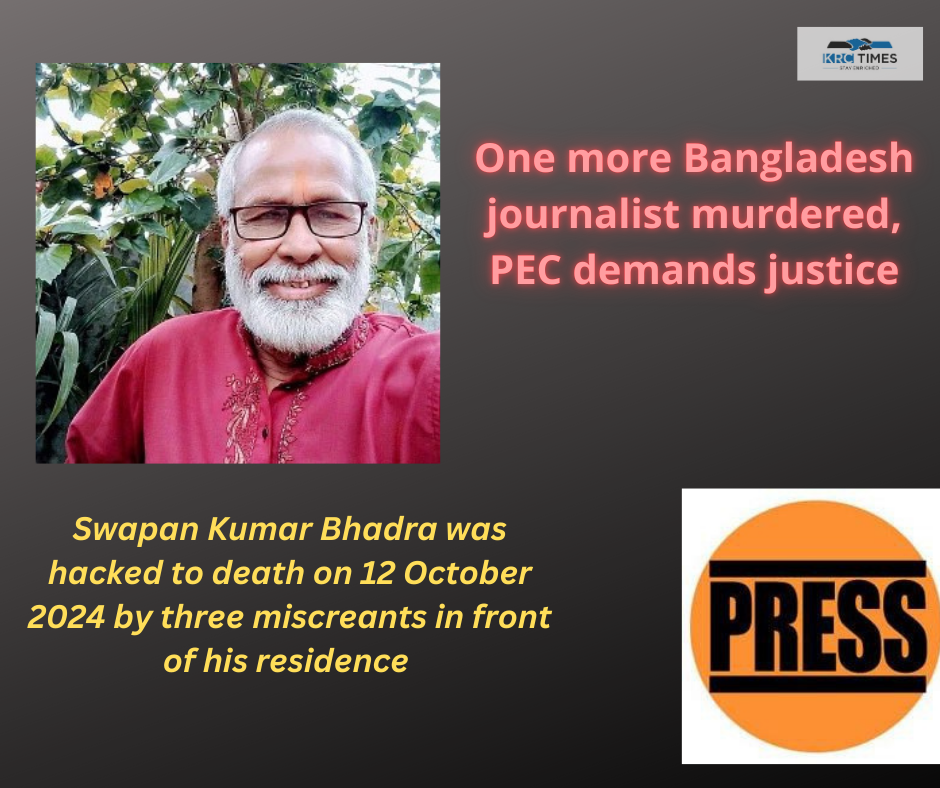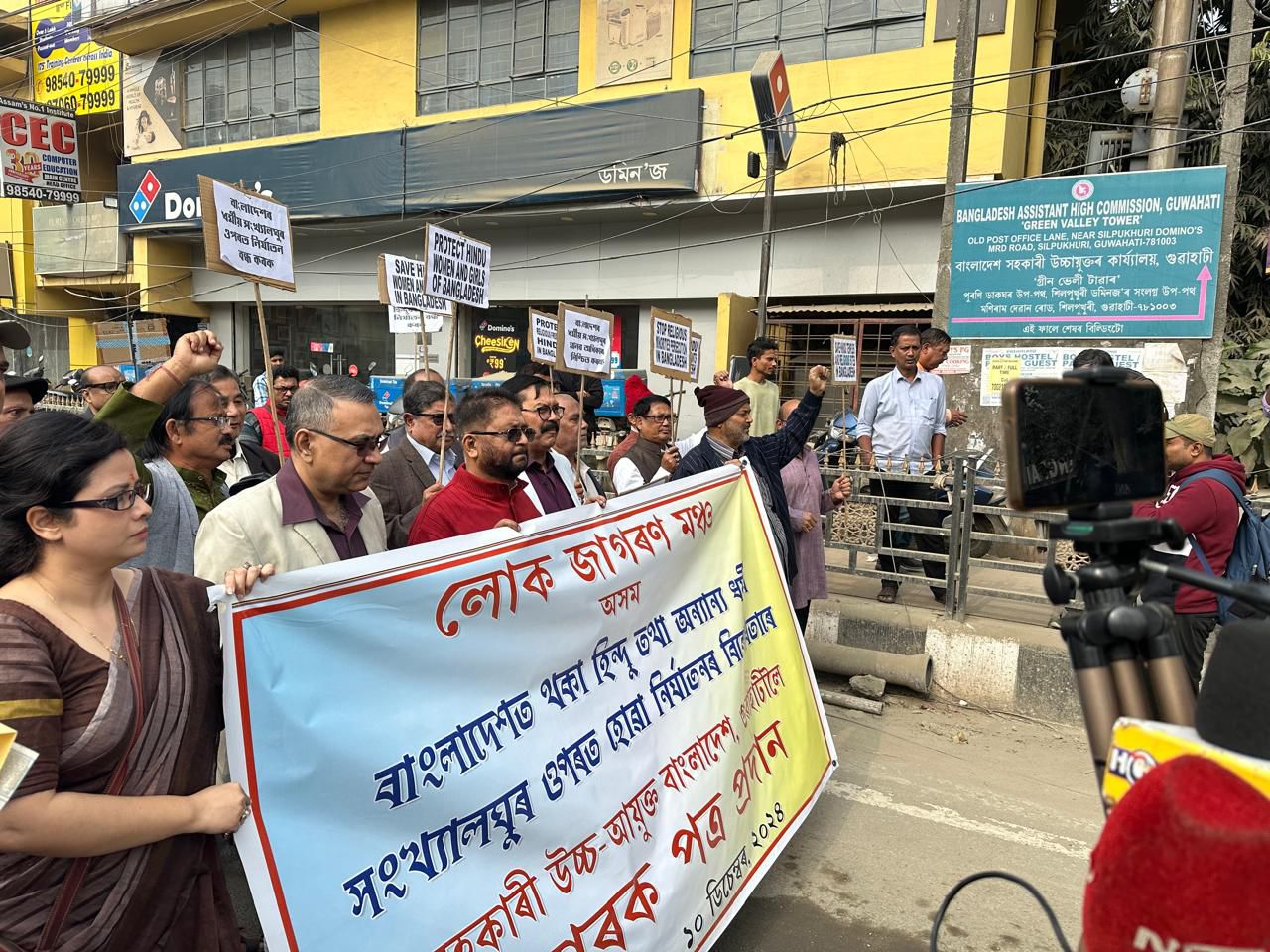Bangladesh’s transition back to democracy may take another year or two. Till then, its leaders’ sharp rhetoric ignoring ground reality will only undermine bilateral ties with its largest neighbour
 KRC TIMES Desk
KRC TIMES Desk

Pinak Ranjan Chakravarty
Bangladesh is again at a crucial juncture in its turbulent history. It’s embroiled in systemic violent reprisals against Awami League members, Hindus and some tribal communities. Its interim government has completed 100 days in office but hasn’t yet projected any time frame for national elections. This continuing uncertainty has strategic implications for regional stability and bilateral ties with India.
The imposition of Muhammad Yunus, an economist and Nobel Peace Prize winner, as chief adviser of the interim government (IG) this August was part of an American script. The US exploited the students’ agitation to steer the eviction of Prime Minister Sheikh Hasina with assistance from Pakistan. The Bangladesh Army fell in line with the plan.
We have seen a similar script before. In 2007, Yunus was encouraged to form a political party after a military-backed caretaker government took over power. The Bangladesh Constitution gave the caretaker government the responsibility of conducting elections within 3 months, but it stayed on for almost 2 years. The American-backed attempt to promote Yunus failed, the caretaker government held elections, and Hasina won to become PM in early 2009. As India’s high commissioner in Dhaka during 2007-10, I witnessed these developments first hand.
Yunus is Bangladesh’s global face. Not only is he very close to the Americans—particularly the Clintons and the Obamas—but he has a running feud with Hasina, whose government embroiled him in several hundred cases of financial irregularities. Now, the IG has junked all these cases.
There hangs a big question on the legitimacy and constitutional legality of the IG itself. The US, China and Pakistan have engaged closely with it, in contrast to India’s more low-key approach. American delegations from the State Department, Pentagon and International Republican Institute (IRI) have visited Dhaka in quick succession to advise Yunus. The CIA-affiliated IRI is said to have been a coordinator of the regime change operation.
China, too, has enthusiastically engaged the IG and promised more loans. It has invited the leaders of Jamaat-e-Islami, Islami Andolan, Hefazet-ul-Islam and Islami Majlish to visit Beijing.
Meanwhile, with disparate agendas on the table, there is not much cohesion in the policies propounded by the IG, which comprises technocrats, retired military officers, lawyers and students selected from among July’s anti-quota agitators.
Students affiliated with Islamist organisations seem to be ruling the roost. Major political parties, like the Bangladesh Nationalist Party led by former PM Khaleda Zia, are calling for an immediate election. The IG has appointed 10 commissions to suggest reforms and appointed new members to the Election Commission.
Student leaders are also demanding a ban on the Awami League (AL), Bangladesh’s largest political party. Its student wing, the Chhatra League, has already been banned in revenge for Hasina banning the Islami Shibir, the youth wing of Jamaat. The weaponisation of the law has led to hundreds of cases filed against Hasina and AL leaders for murder and even genocide.
The murky political situation is overlaid by a pervasive mood of revenge. Attacks have not just targeted AL leaders, but Hindus and tribals too. Institutions have been invaded by mobs and their heads—many of them Hindus—forced to resign. There is also a forced migration of Hindus and tribals into India. Many communities from the Chittagong Hill Tracts have taken refuge at temporary camps in Mizoram.
The formation of a joint force comprising the Bangladesh Army and police, with army officers granted the powers of a magistrate to enforce law and order, has tried to control the situation, but with limited success.
A large number of imprisoned Islamists have been released under an amnesty. Among them is an ISIS and Al-Qaida sympathiser, Jasimuddin Rahmani, head of the Ansarullah Bangla Team who was convicted of murdering atheist bloggers. Upon his release, he promptly threatened India with dire consequences. He has called upon all Muslims to fight for the independence of Kashmir and exhorted West Bengal Chief Minister Mamata Banerjee to secede from India.
The Hindus have organised under a former ISKON monk and presented an eight-point demand for safety. Several other Hindu organisations have supported the demand. The IG’s response has been vindictive. Hindus travelling to these organisations’ gatherings have been attacked. The monk, Chinmoy Krishna Das, has been arrested and is likely to be charged with sedition for insulting the national flag. This misguided move will only cause more chaos.
India has expressed concern and called for legal action against those who attacked Hindus. Yunus has repeatedly said that the attacks are not “communal”, but are politically motivated because the Hindus are largely considered AL supporters.
The policy pivot towards Pakistan has seen a cargo ship from Karachi docking at Chittagong for the first time in decades. Restrictions like compulsory checking of cargo and a bar on Pakistani students enrolling at Bangladeshi institutions have been lifted.
Bangladesh has declared it wants Hasina to be handed over to face court cases. There is a bilateral extradition treaty it can invoke. But knowing the chance of India handing over Hasina is nil, Bangladesh has so far hesitated to act. For now, it wants Hasina to stop issuing statements from Delhi.
If Yunus indeed wants to prosecute Hasina at the International Criminal Court, as he has claimed, he should also investigate the violence during his stewardship, particularly the 4,000-plus incidents of rights violations of the Hindu and tribal communities.
Grandstanding aside, the realisation that India and Bangladesh cannot wish away their mutual interdependency has dawned. Yunus has tried to make amends by reiterating the IG will seek friendly ties with India, asserting there is no alternative.
While patiently observing all this, New Delhi has permitted normal trade to restart. It has allowed electricity from Nepal and a plant in Jharkhand to be wheeled over to Bangladesh. The export of essential food items is back on track. However, the Indian visa system in Dhaka is still hobbled by a lack of officers who were withdrawn because of security concerns.
Bangladesh’s transition back to democracy may take another year or two. Till then, its leaders’ sharp rhetoric ignoring ground reality will only undermine bilateral ties with its largest neighbour. For itself, India faces a familiar challenge and its policymakers can deal with it as they have before.
Pinak Ranjan Chakravarty is the Former High Commissioner to Bangladesh and former Secretary, the Ministry of External Affairs





